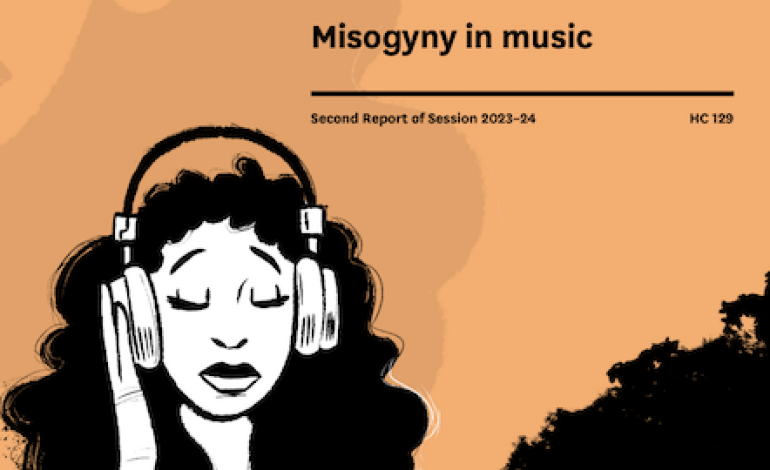
The beginning of 2024 saw a flood of hidden truths exposed regarding misogyny in the UK music industry. A perfect summary pitched by The Independent describes that the new wave calling for equality revealed the “culture of silence” that’s entrenched in the music industry. It placed a blanket of shame over victims of sexual assault and harassment that prevented them from speaking out, in fear of loosing their chances of success, and due to the underrepresentation of women in the industry offering guidance.
A rippling wave has been triggered as more and more female musicians have spoken up in solidarity. Chloe Little, the other half of the duo ‘Wings of Desire’, shares some unsettling stories that all have a common theme of gaslighting. At age 19, she sent a notable producer her music. After he expressed his enthusiasm, he invited her to work with him. The producer, a man double her age, invited her not to a professional location, but to his hotel room in Mayfair to collect the music. The fear of confronting him at her young age played a big role, along with the manipulation that she would have to “prove” she was good enough and to do so, this was the “normal” protocol.
The British singer and songwriter Katie Waissel, who rose to fame on season seven of The X Factor, spoke up on the 30th of January, 2024. The 38 year old interviewed with Sky News, and stated that her time within the industry was a “frightening place to be.” Like Chloe, as young as sixteen, most of the time Waissel was “unsure of what (was) actually happening.” She reported to The Sun that X Factor “ruined her life,” and in early 2023, she was planning a legal battle against one of the companies that run X Factor: Simon Cowell’s Syco Entertainment.
Despite great changes that have occurred, it hasn’t changed the toxicity behind closed doors. Men in powerful positions often use the vocabulary related to female mental health to mask misogyny. A stomach-churning method that has worked because the public have sympathised with this vocabulary, which has driven “change”.
The root of Katie’s reluctance to speak out was the fear of losing her job because of the “zero-transparency” non–disclosure agreements (NDAs) which were left unsigned. These contracts were shown to her without receiving any guidance. She described that every speck of the music industry was led by powerful male figures who operated within the same circle. Interviewee of Sky News describes it as a “boys club.” All of which, “swim in the same pond.” The music industry is “A very small pond – with fish that believe they are large.” (Waissel) This hierarchy of figureheads, whether these are leaders of PR / marketing firms, or record labels, possess a style of behaviour that resembles a cardboard cut-out of one another. She describes this replication of behaviour as a “trickle-down effect”. The bosses behaviour sets a precedent which is subsequently seen as socially acceptable.
This is a tremendously important conversation because, as Waissel states, she has “finally found the confidence” to contribute to the conversation, and she expresses her disbelief that this “hysteric behaviour has been going on for so many years…” She was motivated to speak up after the Women and Equalities Committee spoke out in early January, 2024. MPs have outwardly stated that misogyny and discrimination is endemic in the industry. The Committee has gathered that women are holistically underrepresented in key roles of the industry.
It appears men have copied one another’s behaviour because of the underrepresentation of women within the industry which has created a toxic power imbalance. As a response, and new mother of one, Katie has pursued a career into protecting artists within the creative sector. She is now the founder of the OWHL Foundation which offers support to female artists – a service she wished she had access to during her time within the “pond” that is the music industry. She is “turning poison to medicine,” states Waissel. She is contributing to an important time in music history, something that has potential to reach the successful heights gained by the “MeToo” movement in 2017. More and more artists are speaking up about the darkness behind the previously pristine and glamorous face of the UK Music Industry.
